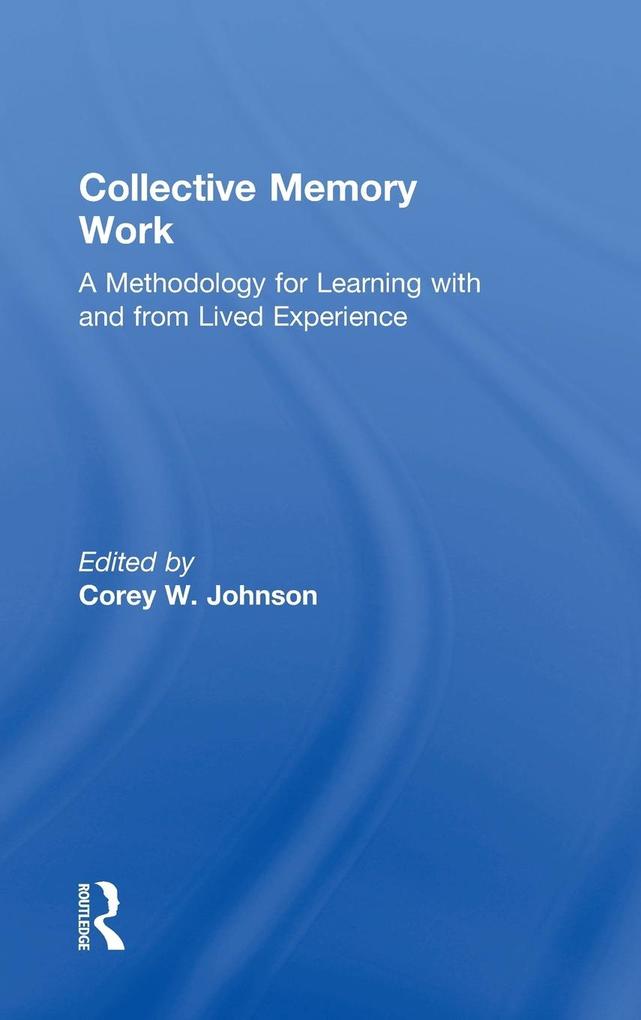
Zustellung: Fr, 04.07. - Mi, 09.07.
Versand in 2 Wochen
VersandkostenfreiBestellen & in Filiale abholen:
Edited by a leading scholar in the field, this book covers the historical background of CMW as a methodology and its place within the wider context of qualitative research methods. It shows key features of the methodology with particular attention to current social issues, and is grounded in the case studies that show its practical applications.
Inhaltsverzeichnis
Acknowledgements
Part One
1. The History and Methodological Tradition(s) of Collective Memory Work Corey W. Johnson, Dana B. Kivel and Luc S. Cousineau
Part Two
2. How Does Media Consumption Contribute to Understandings of Manhood According to Race and Sexual Identity? Rudy Dunlap and Corey W. Johnson
3. How do Adults Remember Their Parents' Reaction to Gender Non-Conformity? Rebecca Eaker, Anneliese Singh and Corey W. Johnson
4. How Can Memories of Enacted Masculinity Create More Effective Elementary School Teachers? Chris Hansen and Corey W. Johnson
5. What are the Experiences of White faculty at Historically Black Colleges and Universities? Needham Yancey Gulley, Anthony F. Patterson and Corey W. Johnson
6. How Do We Sustain Activism?: LGBTQ and Black People Share Their Positive and Negative Experiences Jemelleh Coes, Needham Yancey Gulley and Corey W. Johnson
7. Using Collective Memory Work to Create Safer Schools for Queer and Trans Students: A Story of Love, Liberation, and Transformation Anneliese A. Singh and Corey W. Johnson
Part Three
8. Why Shouldn't I Do Collective Memory Work? Potential Challenges and Pitfalls Nikki Laird and Corey W. Johnson
9. Are you next? Common Elements of Collective Memory Work Corey W. Johnson and Harrison Oakes
Contributing Authors
Part One
1. The History and Methodological Tradition(s) of Collective Memory Work Corey W. Johnson, Dana B. Kivel and Luc S. Cousineau
Part Two
2. How Does Media Consumption Contribute to Understandings of Manhood According to Race and Sexual Identity? Rudy Dunlap and Corey W. Johnson
3. How do Adults Remember Their Parents' Reaction to Gender Non-Conformity? Rebecca Eaker, Anneliese Singh and Corey W. Johnson
4. How Can Memories of Enacted Masculinity Create More Effective Elementary School Teachers? Chris Hansen and Corey W. Johnson
5. What are the Experiences of White faculty at Historically Black Colleges and Universities? Needham Yancey Gulley, Anthony F. Patterson and Corey W. Johnson
6. How Do We Sustain Activism?: LGBTQ and Black People Share Their Positive and Negative Experiences Jemelleh Coes, Needham Yancey Gulley and Corey W. Johnson
7. Using Collective Memory Work to Create Safer Schools for Queer and Trans Students: A Story of Love, Liberation, and Transformation Anneliese A. Singh and Corey W. Johnson
Part Three
8. Why Shouldn't I Do Collective Memory Work? Potential Challenges and Pitfalls Nikki Laird and Corey W. Johnson
9. Are you next? Common Elements of Collective Memory Work Corey W. Johnson and Harrison Oakes
Contributing Authors
Produktdetails
Erscheinungsdatum
04. Juni 2018
Sprache
englisch
Seitenanzahl
156
Herausgegeben von
Corey W Johnson
Verlag/Hersteller
Produktart
gebunden
Gewicht
395 g
Größe (L/B/H)
229/152/11 mm
ISBN
9781138237919
Entdecken Sie mehr
Bewertungen
0 Bewertungen
Es wurden noch keine Bewertungen abgegeben. Schreiben Sie die erste Bewertung zu "Collective Memory Work" und helfen Sie damit anderen bei der Kaufentscheidung.










